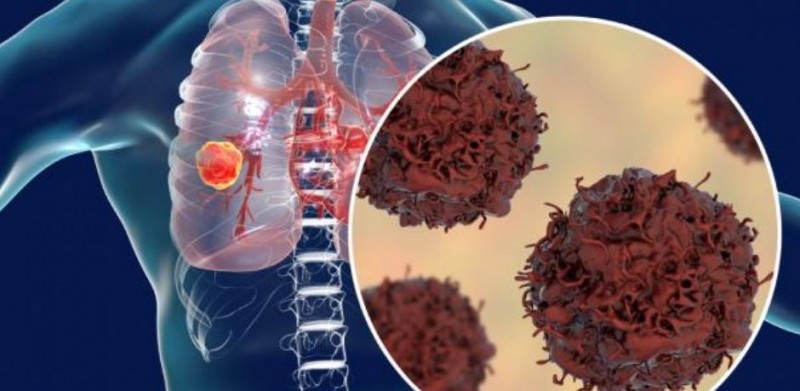
The air quality in cities across India, including the Delhi-NCR region, has become dangerously polluted. The continuous increase in the Air Quality Index (AQI) levels is not only affecting people's health but also exacerbating various respiratory issues. The harmful particles in the air due to pollution enter the respiratory system, leading to a range of health problems. Breathing in polluted air poses the highest risk to the respiratory system, with the World Health Organization (WHO) estimating that approximately 7 million people die prematurely worldwide each year due to air pollution.
WHO emphasizes that every hour, 800 people or 13 people per minute die solely due to air pollution. Furthermore, air pollution is responsible for more deaths than combined risks such as malnutrition, alcohol, physical inactivity, and other factors. The impact of air pollution on children is particularly alarming, with around 6 lakh children succumbing to its effects every year. The human body's vital organs, especially the lungs, are severely affected by the harmful particles present in the air. This has led to an increase in the probability of various lung diseases, including lung cancer.
Risk of Cancer Due to Pollution:
Air pollution is a significant contributor to the increasing risk of lung cancer. Understanding the various factors that make polluted air a potential carcinogen is crucial for addressing and mitigating this risk.
Inhalation of Carcinogens:
Prolonged exposure to polluted air introduces a variety of carcinogenic substances into the respiratory system. Benzene, formaldehyde, polycyclic aromatic hydrocarbons, and other harmful compounds can infiltrate the lungs, causing damage to the DNA in lung cells. This damage becomes a precursor to the development of cancer.
Oxidative Stress:
Fine particles, particularly PM2.5, and other toxic particles present in polluted air induce oxidative stress in the respiratory system. Oxidative stress leads to an imbalance between free radicals and antioxidants in the body, resulting in DNA damage, inflammation, and cellular damage. These processes contribute significantly to the initiation and progression of cancer.
Weakened Immune System:
Prolonged exposure to air pollutants weakens the immune system's ability to detect and eliminate abnormal or cancerous cells. The compromised immune response allows cancer cells to evade detection, leading to an increased risk of lung cancer.
Mechanisms Leading to Cancer:
Understanding the intricate mechanisms through which air pollution contributes to the development of cancer provides insights into potential intervention strategies and targeted preventive measures.
Inhalation of Carcinogens:
The process starts with the inhalation of carcinogenic substances present in polluted air. These substances, such as benzene and formaldehyde, can penetrate lung cells, initiating the chain of events that eventually leads to DNA damage.
DNA Damage and Cell Mutation:
Carcinogens in polluted air cause direct damage to the DNA in lung cells. This damage can result in mutations, disrupting the normal functioning of cells and paving the way for the development of cancerous cells.
Initiation and Promotion of Cancer Cells:
The damaged DNA and mutated cells undergo changes that promote uncontrolled cell growth. This unregulated cell division gives rise to cancer cells, contributing to the formation of tumors in the lungs.
Role of Oxidative Stress:
Oxidative stress induced by fine particles and toxic particles in polluted air plays a pivotal role in the carcinogenic process. Reactive oxygen species generated during oxidative stress contribute to DNA damage and further support the growth of cancer cells.
Immune System Suppression:
Prolonged exposure to air pollutants weakens the immune system, reducing its capacity to recognize and eliminate cancer cells. This immune system suppression creates an environment conducive to the survival and proliferation of cancer cells in the lungs.
Preventive Measures:
Implementing preventive measures is essential in reducing the risk of lung cancer associated with air pollution. These measures span personal habits, environmental considerations, and public health initiatives.
Use of Masks:
Wearing masks, especially in highly polluted areas, serves as a practical and immediate preventive measure. Masks act as a barrier, reducing the inhalation of harmful pollutants and lowering the risk of respiratory issues and lung cancer.
Air Purification:
Ensuring a clean indoor environment is crucial. Keeping windows and doors closed during periods of high outdoor pollution can prevent external pollutants from entering the home. Additionally, using air purifiers indoors can further reduce the concentration of harmful particles.
Stay Informed:
Staying informed about local air quality levels is essential. During days of elevated pollution, limit outdoor activities and take precautions. Utilize air quality monitoring apps or websites to track real-time air quality in your area.
Healthy Lifestyle Choices:
Maintaining a healthy lifestyle contributes significantly to overall well-being and can help counteract the effects of air pollution. A balanced diet rich in antioxidants, vitamins, and minerals supports lung health and mitigates oxidative stress.
Hydration:
Drinking an adequate amount of water is essential for flushing out toxins from the body. Hydration aids in the removal of harmful substances from the respiratory system, reducing the overall impact of air pollution.
Environmental Advocacy:
Participating in and supporting initiatives that advocate for reduced air pollution is crucial. Engaging in community efforts, supporting environmental policies, and raising awareness about the health risks associated with polluted air can contribute to long-term preventive measures.
In conclusion, the rising levels of air pollution pose a severe threat to respiratory health and increase the risk of lung cancer. Implementing these preventive measures can contribute to reducing the impact of air pollution on lung health and overall well-being. It is essential for individuals to stay vigilant, prioritize their health, and work collectively towards creating a cleaner and healthier environment.
This one mistake on Diwali can harm your loved ones
If such problems persist for more than a week, be careful, it may be pneumonia, can take life